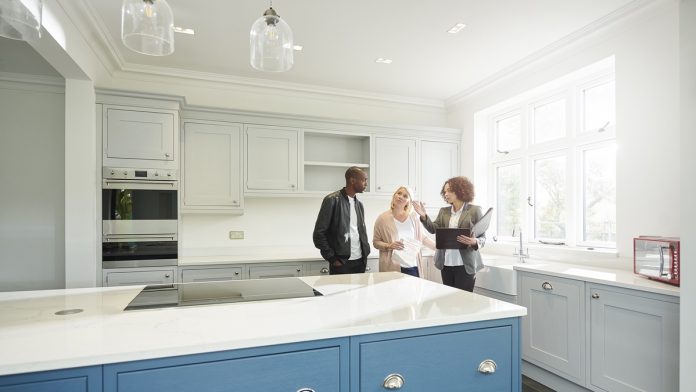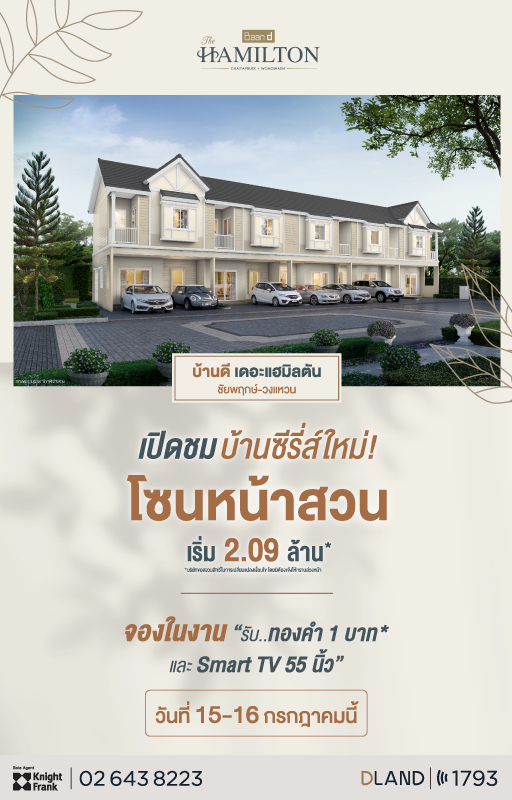The Covid-19 outbreak has completely changed people’s way of living. Every business segment, including the real estate market, must be ready to adapt to the “New Normal” to support the changing behaviours and needs of a new type of consumer. Knight Frank Thailand has conducted a Knight Frank Customer Survey to learn about the housing needs in a post-Covid-19 world, the effects of various preventative measures, and a society that increasingly starts to work from home. As such, there is a need for more relaxation areas, work places and kitchen spaces – by 43 percent, 28 percent, and 19 percent of respondents, respectively. In addition, as for amenities within the project, 92 percent cited its importance, with a specific interest in convenience stores and green spaces; some people would also like a work corner in the garden. The reasons include ease of finding food, and space for relaxing and resting the eyes. Safety and Covid-19 virus screening ranked second at 85 percent.
Graph 1: Greater Unit Size Needs

Graph 2: Interest in Common Areas within the Project

The condominium segment of the real estate market in a post-Covid-19 world is more balanced, better reflecting the demand for residential purchases, as speculation has decreased. From the survey among condo buyers, it was found that 51 percent of buyers are likely to purchase a condo in a 3-year period, while 49 percent are not interested in buying. On the whole, those interested in buying include 45 percent who buy for their own occupancy, 35 percent for investment, and 17 percent as assets. The condominium group that received the most interest includes those that do not exceed 3 million baht at 60 percent, as it represents the most acceptable price level and a real demand for housing. Next is the condominium priced from 3 – 5 million at 28 percent, while condos priced from 5 million and up received the least interest.
Graph 3: Objectives for Buying a Condo within Next 3 Years

Graph 4 : Budgets for Condo Purchases within Next 3 Years

Locations of condominiums in the city centre, such as Asoke, Sukhumvit, Rama 9, Ratchada, Rama 4, etc., continue to receive a good amount of interest, accounting for 50.4. percent due to their easy access to the BTS and MRT. Condominiums located around the city, such as Ramkhamhaeng, Tha Phra, Bearing, etc., received quite a bit of interest at 49.6 percent, probably because buyers needed more living space; even though those areas are farther from the city, it does not take very long to travel to the city centre.
Mr. Frank Khan, Executive Director and Head of Residential, Knight Frank Thailand Co., Ltd., said, “Overall, the condo market is still slow because foreign purchasing power is missing. Also, the purchasing power in the country has been disrupted as buyers are more cautious in spending. Consequently, most developers are freezing the launches of new projects this year; instead, they are focusing on existing stocks. This trend may be extended until the first quarter of 2021, and if the outbreak of Covid-19 ends, the Thai economy will recover rapidly. Most people affected by this crisis are workers and business owners, while the country’s financial institutions and government spending remain stable and continue to be largely unaffected. Stable buyers who have a plan to buy a condominium will grasp the opportunity if the deal involves selling prices dropping from 10 to 30 percent.”
Ms. Potjaman Vorakitpokathorn, Head of Project Marketing, Knight Frank Thailand Co., Ltd., added, “The effects of the Covid-19 epidemic include ‘new normalities’ that have changed people’s lifestyles, with lots of limitations. We have been able to provide product development consultancy as we have closely studied and understand the real needs of consumers, including what property developers should adjust or change after Covid-19 ends.”
Covid-19 did not only change the behaviours of consumers. We will also definitely see changes in user functionality and operator adjustments, focusing on personal space and living space such as the bedroom and kitchen, as well as in common areas, which would be more suitable for working at home and meeting the needs of the post-Covid-19 period.














